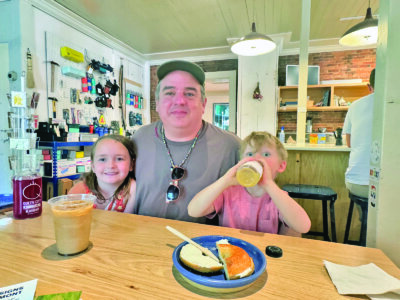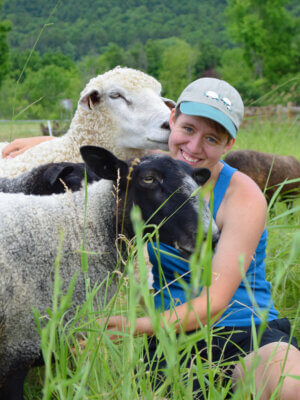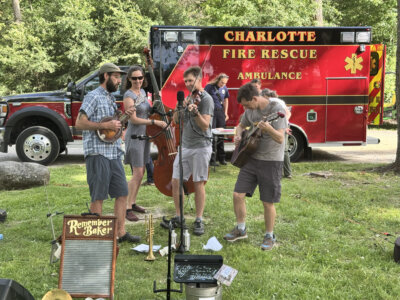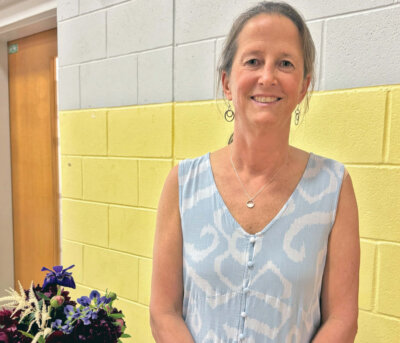Entrepreneur Will Raap closes on the sale of Nordic Farms
One of the most ambitious endeavors in Vermont agriculture, the redevelopment of the iconic Nordic Farms on Route 7 in Charlotte, took several defining steps forward this week.
The most critical was the purchase of the property, which was delayed several times due to the complexities of the sale, including having to satisfy multiple creditors and stakeholders, among them former owner Clark Hinsdale. That has now happened. “We closed on the purchase of Nordic Farm assets December 14 after six months of operating the farm and discovering the challenges of reviving a 600-acre conserved dairy farm that failed,” announced Will Raap, the founder of Gardener’s Supply and the property’s new owner.
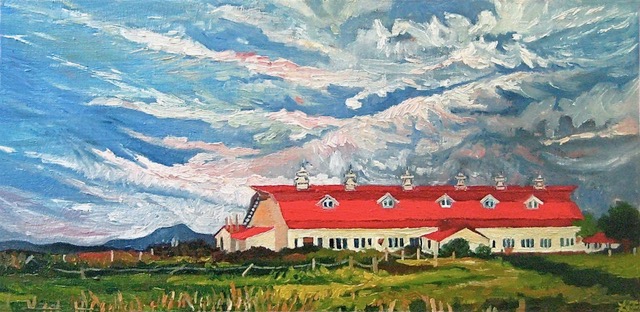
Along with the purchase, Raap said the property will be rebranded and reorganized over the coming months, including into a collaborative entity of multiple on-farm businesses that could serve as a model for other struggling farms. “We are renaming the Farm “Earthkeep,” he explained, “and the six farming businesses [currently] operating there are making good progress in terms of business momentum and in achieving a new umbrella permit from the Vermont Agency of Agriculture, Food & Markets for these farms to function as a collective.”
Critical to the project’s ability to move forward was the determination for farm operation, which Robin Jeffers, Nordic’s Chief Operating Officer, stated they have secured. She shared with The Charlotte News a letter dated December 3, 2021, signed by Vermont Secretary of Agriculture Anson Tebbetts, stating that “it is the Agency’s opinion that Nordic Farmer Collective will meet one or more of the threshold criteria listed…and it is a farm operation the Agency regulates.” That determination, Jeffers said, also “satisfies the Town of Charlotte, insofar as permitting goes, that we are indeed farming.”
The Charlotte Town Planner, Larry Lewack, welcomed the news of the sale and was cautiously optimistic about the project’s future. “Most people want to see positive things happen there. Will Raap is a visionary, and sometimes the big expansive visions don’t work out 100%, but if even a third come to pass, there would be a lot more activity and, if done right, it could be a real asset to the town.” Lewack said Nordic had no current zoning applications before the town, but he anticipated there would be as the project progresses. If, for example, future plans proceed for non-farming uses, like manufacturing or a visitor’s center, which would impact traffic and groundwater uses, they would have to go before the Development Review Board. “When they’re ready, we’ll work with them in a collaborative and proactive way,” he stated.
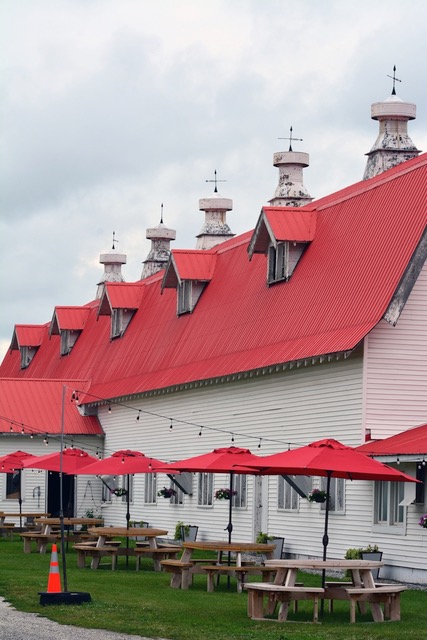
Farmers and processors included in the collective, which will be called “Farmcommon”, include Vermont Malthouse; Sweet Sound Aquaculture; Slowfire Bakery; Foam Brewery; Upstate Elevator Supply company, a CBD business owned by one of Raap’s sons; Champlain Valley Apiary; Clayton Floral; Shrubbly LLC; and Vermont Compost Company. According to the Nordic project narrative, “These owners have all banded together to…support one another through shared resources, marketing, skills and innovation.”
The proposed uses of the conserved land are listed as grain production on 238 acres; produce on 13 acres; hemp on 4 acres; berries on 19 acres; flowers on 1 acre; honey on .4 acres; compost and livestock on 20 acres; and shrimp in 3,800 square feet in the former heifer barn.
Now that the sale has gone through and the entity has been recognized as a farm operation, near term priorities include establishing a 501(c)(3) for a portion of the farm that includes the historic barn, as well as individual businesses moving forward with their own business plans. “They’ll each be pursuing their own financing. Some are looking at loans and local grants and some are looking to jump start their expansions,” Jeffers elaborated. “So, for example at the malt house they are probably getting a Vermont Economic Development Agency (VEDA) loan to add a new gas fired heat source for malting.”
The success of the redevelopment is predicated on the diversity of its farming enterprises and wide and differentiated funding streams from private and public sources. Raap and Jeffers are undertaking everything possible to ensure that they attract as much financial and public support as possible. To that end, they recently hosted a closed summit to introduce the project to an audience of about 65 invited participants. “There were investors who are philanthropically inclined, “angel” investors, as well as people from the Department of Agriculture who have funding mechanisms for grants…who we wanted to have a deeper understanding of what we were trying to achieve.”
Jeffers said that they hope to raise a total of $8 million to support the overall redevelopment. Half of that will be for the nonprofit, including a restoration of the historic barn and the construction of a commercial kitchen, and half of it will be for improvements and expansions on the for-profit side. As of now, they are on sound financial footing. “We definitely have enough [funding] to go forward for the first year,” she asserted. “It’s a matter of how much fundraising would accelerate or expand existing businesses. We’re in a good place and people want to expand from that good place and grow.”
Jeffers projected a sense of optimism and expressed gratitude for all the support the project has attracted, beginning with the town and, especially, the Department of Agriculture. “They feel strongly that this is a really great model that lots of other farms can use. There are between 700-800 dairy farms in Vermont that are struggling with large working landscapes, and to the extent that we can be successful, many other farms can be successful. We couldn’t be happier about it for ourselves, but also for farming in general in the state.”
Related Stories
Popular Stories
If you enjoy The Charlotte News, please consider making a donation. Your gift will help us produce more stories like this. The majority of our budget comes from charitable contributions. Your gift helps sustain The Charlotte News, keeping it a free service for everyone in town. Thank you.
Andrew Zehner, Board Chair




